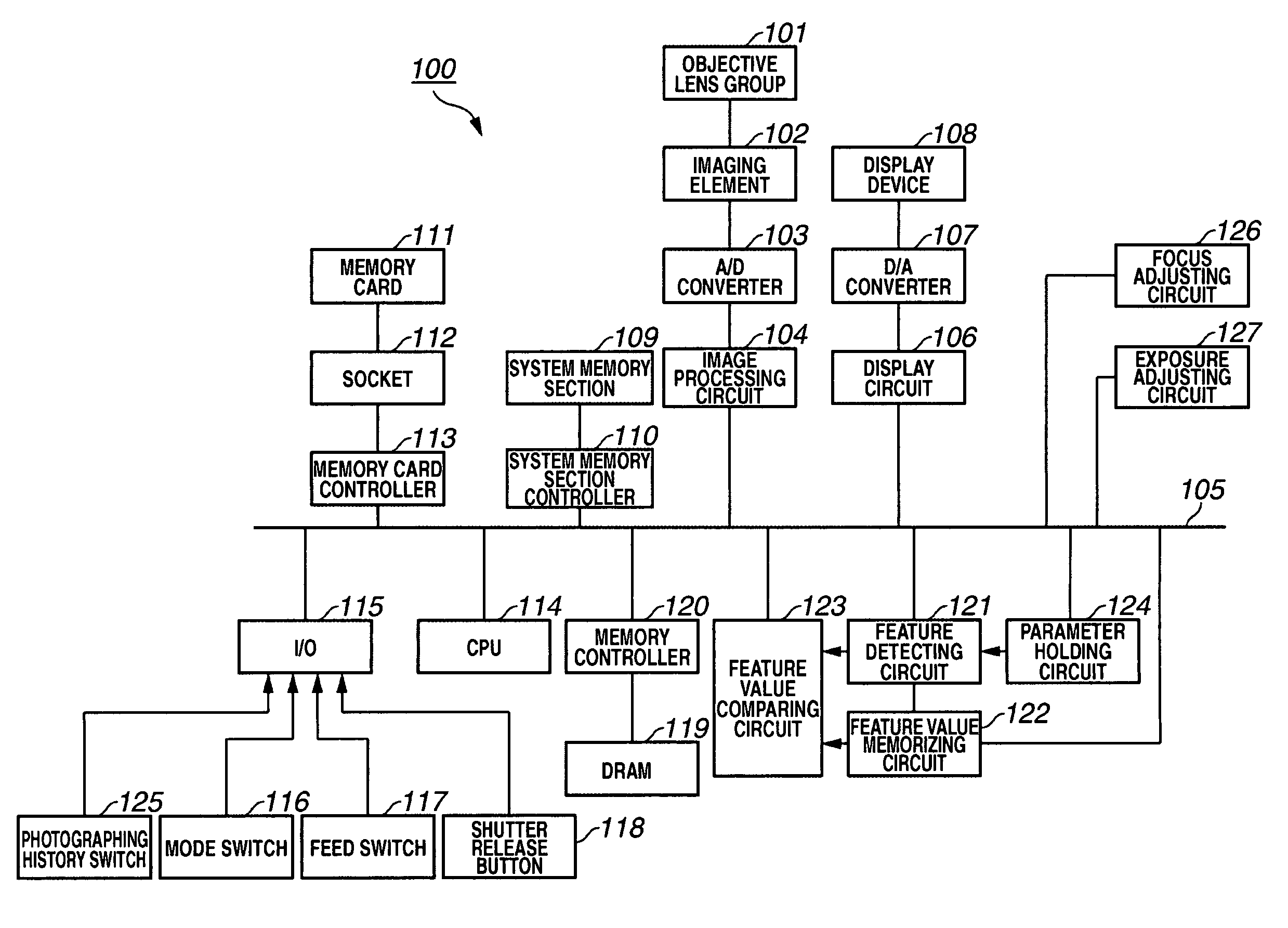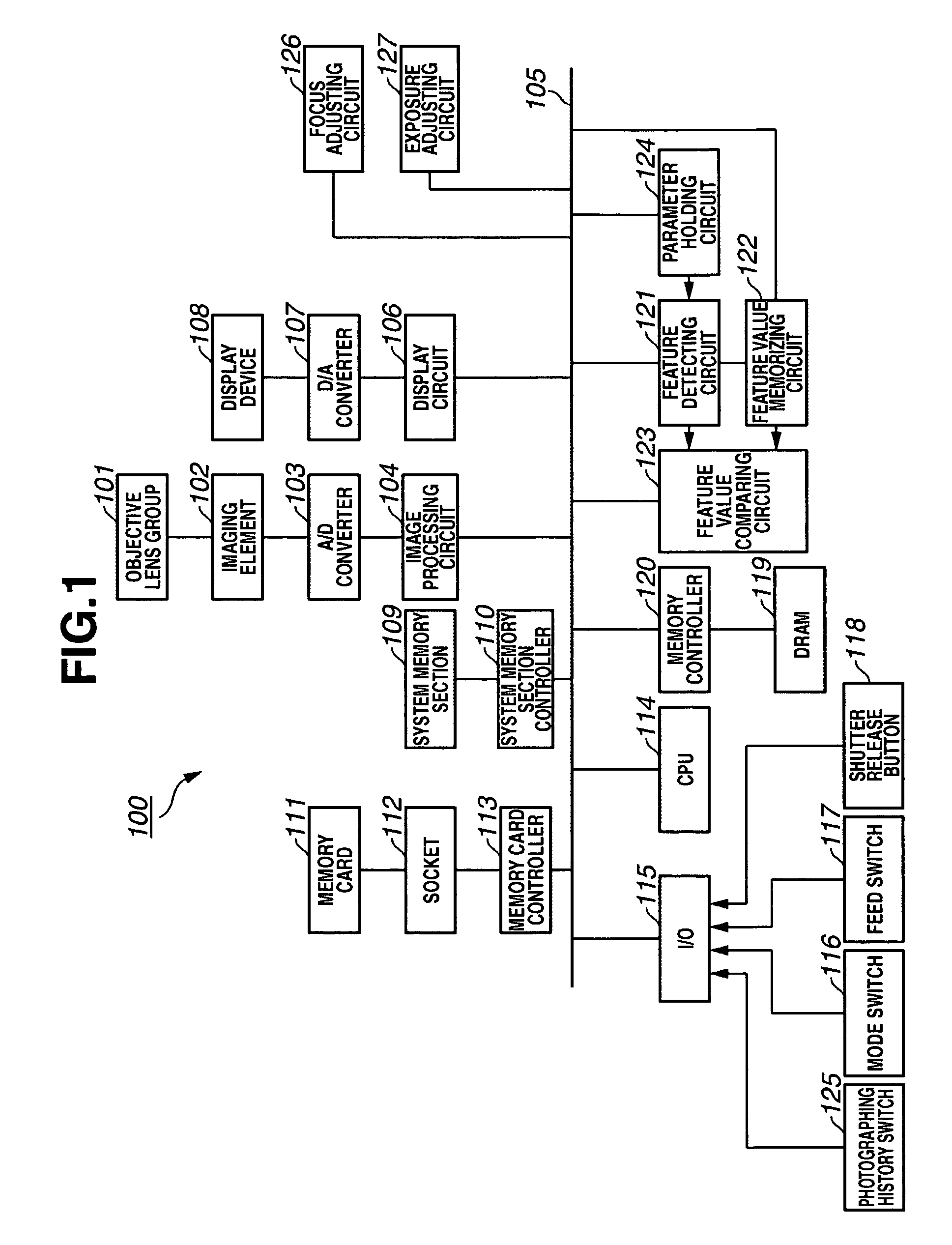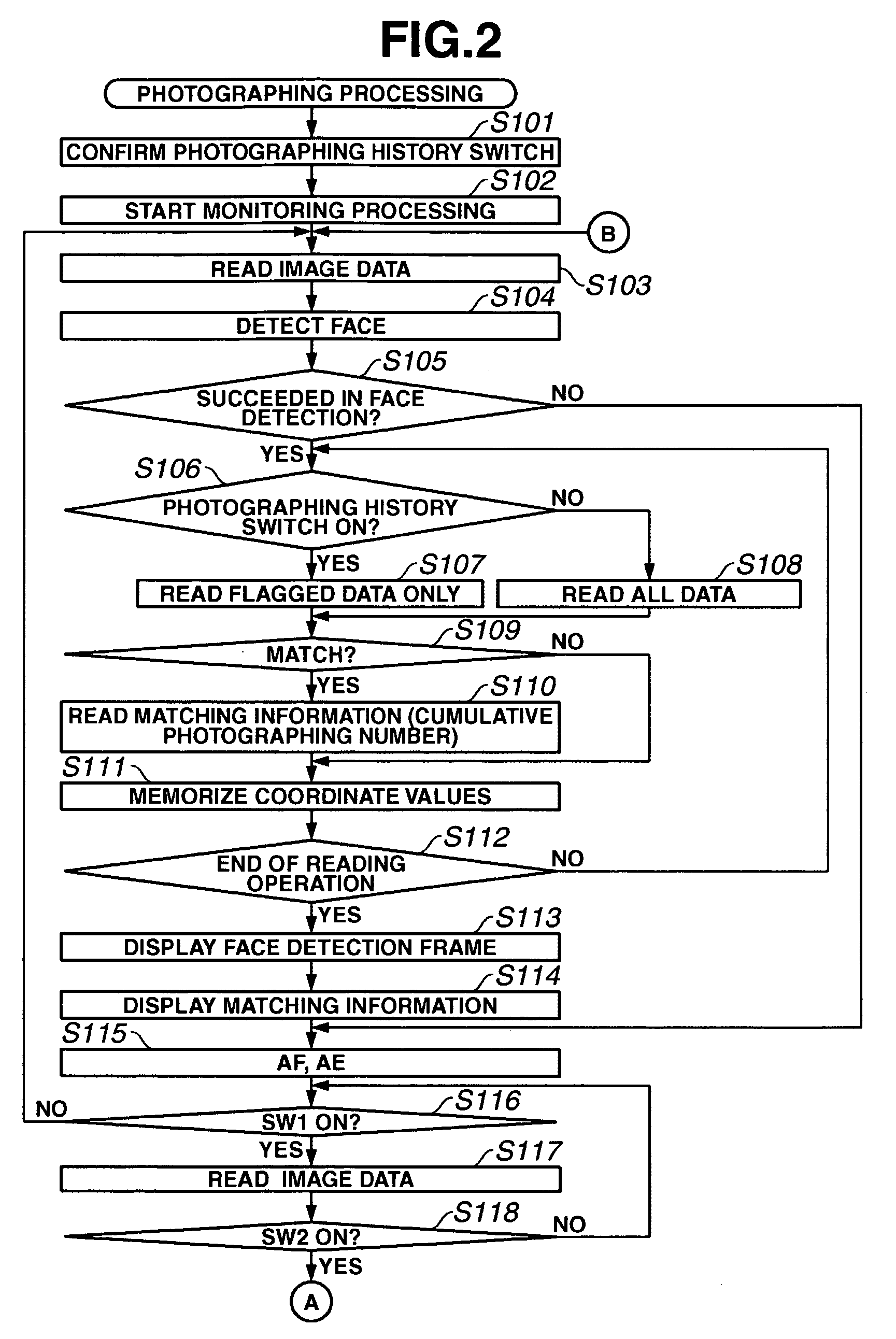Imaging apparatus and method for controlling display device
- Summary
- Abstract
- Description
- Claims
- Application Information
AI Technical Summary
Benefits of technology
Problems solved by technology
Method used
Image
Examples
first embodiment
[0040]FIG. 1 shows the arrangement of an imaging apparatus 100 in accordance with a first embodiment. In the present embodiment, the imaging apparatus 100 is an electronic still camera.
[0041] In FIG. 1, an objective lens group 101 is an assembly of lenses for forming an object image on an imaging element 102. The imaging element 102, such as a charge-coupled device (CCD), has a photoelectric conversion function and can convert the object image obtained through the objective lens group 101 into analog image data. An analog-digital (A / D) converter 103 receives the analog image data sent from the imaging element 102 and converts the analog image data into digital image data. An image processing circuit 104 can apply various imaging processing to the digital image data converted by the A / D converter 103 to produce display-oriented image data and recording-oriented image data.
[0042] A data bus 105 can transfer the image data. A display circuit 106 can process the display-oriented image...
second embodiment
[0117] Next, another photographing processing of the imaging apparatus 100 will be described with reference to the flowchart shown in FIG. 5. The flowchart shown in FIG. 5 is different from the flowchart shown in FIG. 2 in that the face detection is not constantly performed during the monitoring processing and is performed only when there is any change in the detected object.
[0118] In FIG. 5, the steps identical with those shown in FIG. 2 are denoted by the same reference numerals.
[0119] When a user sets a photographing mode, the CPU 114 confirms the condition of the photographing history switch 125 in step S101.
[0120] In step S102, the CPU 114 produces display-oriented image data based on an output of the imaging element 102 and starts the monitoring processing for controlling the display device 108 to display a moving or time-varying image of the detected object.
[0121] In step S103, the imaging element 102 performs the photoelectric conversion to output analog image data. The ...
third embodiment
[0126] Next, another photographing processing of the imaging apparatus 100 will be described with reference to the flowchart shown in FIG. 6. The third embodiment (i.e., the flowchart shown in FIG. 6) is different from the first or second embodiment in that the face detection result gives no effects on the focus adjustment processing and the exposure adjustment processing.
[0127] When a photographing mode is set by a user through the mode switch 116, the CPU 114 starts the operation according to the flowchart shown in FIG. 6.
[0128] In step S101, the CPU 114 confirms the condition of the photographing history switch 125. When the photographing history switch 125 is in an ON state, it means that the operation is in the history period.
[0129] In step S102, the CPU 114 produces display-oriented image data based on an output of the imaging element 102 and starts the monitoring processing for displaying a moving or time-varying image of a detected object on the display device 108.
[0130]...
PUM
 Login to View More
Login to View More Abstract
Description
Claims
Application Information
 Login to View More
Login to View More - R&D
- Intellectual Property
- Life Sciences
- Materials
- Tech Scout
- Unparalleled Data Quality
- Higher Quality Content
- 60% Fewer Hallucinations
Browse by: Latest US Patents, China's latest patents, Technical Efficacy Thesaurus, Application Domain, Technology Topic, Popular Technical Reports.
© 2025 PatSnap. All rights reserved.Legal|Privacy policy|Modern Slavery Act Transparency Statement|Sitemap|About US| Contact US: help@patsnap.com



